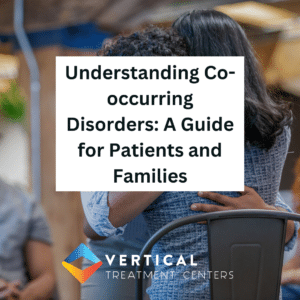
Understanding Co-occurring Disorders: A Guide for Patients and Families
Co-occurring disorders, also known as dual diagnosis, are gaining increasing attention in the mental health and addiction treatment world. This comprehensive guide offers patients and families a deeper understanding of co-occurring disorders to help them navigate these complex conditions.
II. Definition of Co-occurring Disorders
Co-occurring disorders occur when someone has a mental health disorder, such as depression or anxiety, alongside a substance use disorder, like alcoholism or drug addiction. These conditions may interact with each other, often exacerbating symptoms and complicating treatment.
III. Common Types of Co-occurring Disorders
Some typical co-occurring disorders include:
- Depression and alcohol use disorder
- Anxiety and drug addiction
- Post-traumatic stress disorder (PTSD) and substance abuse
- Bipolar disorder and addiction
IV.The Causes of Co-occurring Disorders
The causes of co-occurring disorders are multifaceted and can include genetic predisposition, brain chemistry, past trauma, environmental factors, and life stressors. In many cases, individuals may self-medicate with substances to alleviate symptoms of a mental health disorder, which can then spiral into addiction.
V. The Intersection of Addiction and Mental Health
Mental health disorders and addiction often go hand in hand. For some individuals, mental health issues may lead them to self-medicate with drugs or alcohol. In other cases, substance abuse can lead to the development or worsening of mental health issues.
VI. Signs and Symptoms of Co-occurring Disorders
Recognizing co-occurring disorders can be challenging, as symptoms may overlap or vary widely, depending on the specific conditions. Some possible signs include:
- Persistent sadness or hopelessness
- Unexplained, frequent mood swings
- Changes in sleep patterns
- Social isolation
- Neglecting personal responsibilities
- Risky or impulsive behavior
- Increased substance use to manage symptoms
VII. Diagnosis and Treatment Approaches
The key to successful treatment is adequately diagnosing and addressing both the mental health disorder and the substance use disorder simultaneously. A combination of medical interventions, therapy, support groups, and lifestyle changes may be necessary. These could include:
- Medication for mental health issues and addiction
- Behavioral therapies, such as cognitive-behavioral therapy (CBT) or dialectical behavior therapy (DBT)
- Family or group therapies
- Support groups like Alcoholics Anonymous (AA) or Narcotics Anonymous (NA)
- Lifestyle interventions, like exercise, healthy eating, and stress management
VIII. The Role of Family and Support Systems
Family members and support systems play a crucial role in managing co-occurring disorders. To provide the best possible support, families can:
- Educate themselves about the specific disorders
- Encourage open communication and understanding
- Offer practical help with daily responsibilities
- Promote healthy habits and boundaries
- Participate in family therapy or support groups for families of individuals struggling with co-occurring disorders
IX. Overcoming Co-occurring Disorders: Hope and Recovery
While the journey to recovery can be challenging, it’s important to remember that many people have successfully managed co-occurring disorders and gone on to lead fulfilling lives. Hearing stories of hope and resilience can inspire and motivate those who are struggling with these complex conditions.
X. Conclusion
In conclusion, understanding co-occurring disorders is essential for both patients and families in order to navigate the complexities of managing these conditions effectively. Comprehensive dual diagnosis treatment and a strong support system are vital components of the healing process. Persistent effort, patience, and professional guidance can help individuals overcome co-occurring disorders and ultimately achieve lasting recovery.